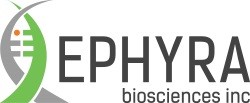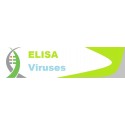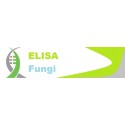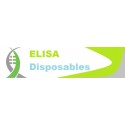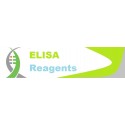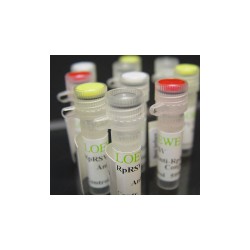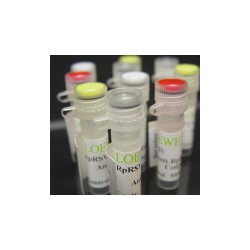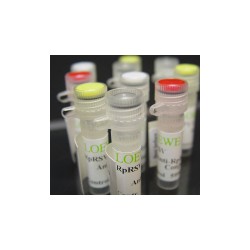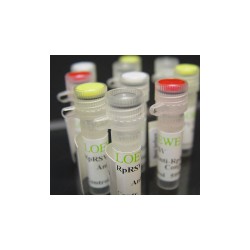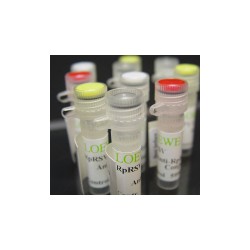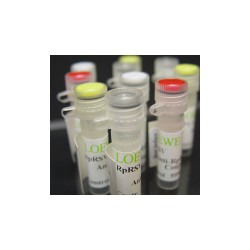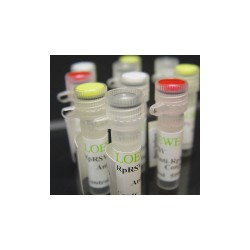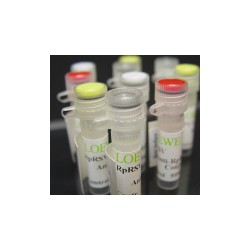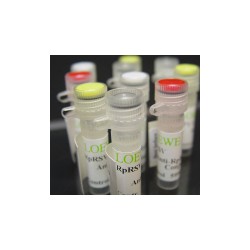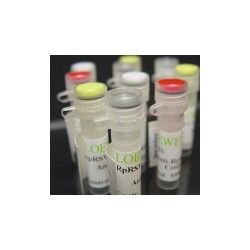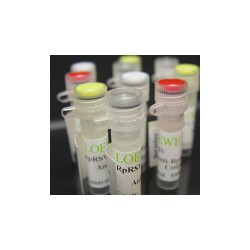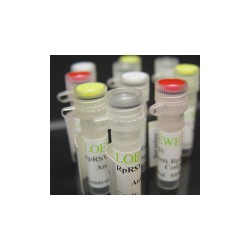ELISA
ELISA (enzyme-linked immunosorbent assay) is a plate-based assay technique designed for detecting and quantifying peptides, proteins, antibodies or hormones. In an ELISA, an antigen must be immobilized to a solid surface and then complexed with an antibody that is linked to an enzyme. Detection is accomplished by assessing the conjugated enzyme ...
ELISA (enzyme-linked immunosorbent assay) is a plate-based assay technique designed for detecting and quantifying peptides, proteins, antibodies or hormones. In an ELISA, an antigen must be immobilized to a solid surface and then complexed with an antibody that is linked to an enzyme. Detection is accomplished by assessing the conjugated enzyme activity via incubation with a substrate, to produce a measureable product. The most crucial element of the detection strategy is a highly-specific antibody-antigen interaction. ELISAs are typically performed in 96-well (or 384-well) polystyrene plates, which will passively bind antibodies and proteins. It is this binding and immobilization of reagents that makes ELISAs so easy to design and perform. Having the reactants of the ELISA immobilized to the microplate surface makes it easy to separate bound from non-bound material during the assay. This ability to wash away nonspecifically bound materials makes the ELISA a powerful tool for measuring specific analytes within a crude preparation.
ELISA There are 222 products.
-
-
Radish Mosaic Comovirus. RaMV (Radish...
Assay Type: DAS ELISA using polyclonal antiserum from rabbit.
-
Ralstonia solanacearum
Ralstonia solanacearum (Burkholderia solanacearum, Pseudomonas solanacearum, Braunfäule, Brown rot, Moko disease (bana),Schleimkrankheit der Kartoffel, Southern bacterial wilt (tomato)). Assay type: DAS ELISA using polyclonal antiserum from goat.
-
Raspberry Bushy Dwarf Idaeovirus. RBDV...
Assay Type: DAS ELISA using polyclonal antiserum from rabbit.
-
Raspberry Ringspot Nepovirus BroadRange....
Assay Type: DAS ELISA using polyclonal antiserum from rabbit.
-
Raspberry Ringspot Nepovirus cherry...
Assay type: DAS ELISA using polyclonal antiserum from rabbit.
-
Raspberry Ringspot Nepovirus grapevine...
Assay type: DAS ELISA using polyclonal antiserum from rabbit.
-
Raspberry Ringspot Nepovirus raspberry...
Assay type: DAS ELISA using polyclonal antiserum from rabbit.
-
-
Rhizoctonia solani
Assay type: DAS ELISA using polyclonal antiserum from rabbit. The antiserum is derived against AG 1-IB, but detects other anastomosegroups as well.
-
Rhodococcus fascians (Corynebacterium...
Assay type: DAS ELISA using polyclonal antiserum from rabbit.
-

